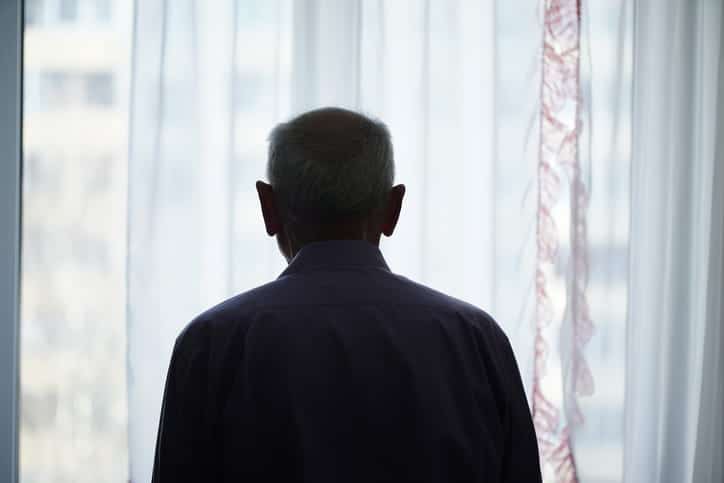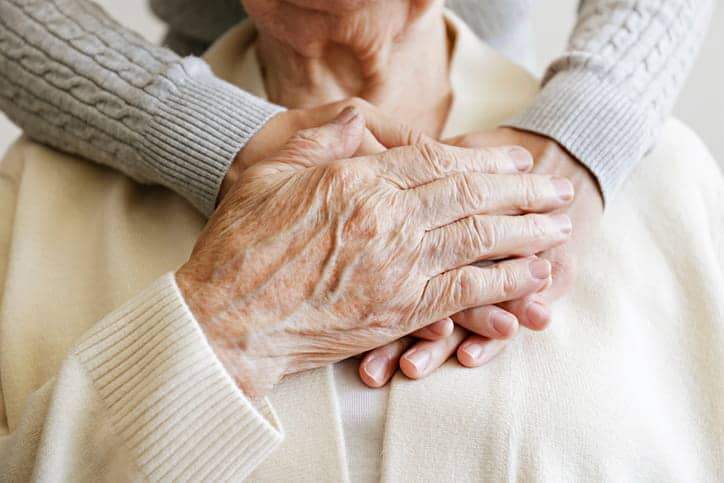
Everyone feels lonely sometimes, but loneliness can be a particularly challenging issue for older adults. Loneliness in the elderly has only increased over the years. Likely, the problem was exacerbated by the coronavirus pandemic of 2020, but it was beginning to display concerning trends even before social isolation was necessary. A 2018 poll conducted by the University of Michigan surveyed older adults between the ages of 50-80. This poll found that as many as 27% felt socially isolated, 34% felt deficient socially, and 28% didn’t have regular socialization. Continue reading to learn more about how to handle loneliness.
Effects of loneliness on the elderly
A 2020 study published by the National Library of Medicine found that isolation in “older adults” is significantly linked to early death “from all causes.” While loneliness is a difficult thing to measure, there is evidence to suggest that people who feel lonely and/or socially isolated are more at risk for the following:
- Dementia (loneliness linked with a 50% increase in risk)
- Heart disease (loneliness linked with a 29% increase in risk)
- Stroke (loneliness linked with a 32% increase in risk)
- Higher rates of depression, anxiety, and suicide
- Lonely heart failure patients could be 68% more likely to be hospitalized and almost four times more likely to die.
The study notes that while not all seniors are lonely, loneliness in the elderly is increasingly common, as is social isolation.
Related: November is American Diabetes Month
Why are seniors more at risk of being lonely?
According to the NHS, people can feel lonely regardless of their age or how active their social life is. However, loneliness is often linked to situations such as:
- Someone close to you dying
- Living alone (roughly 28% of adults 65 or older live alone)
- Retirement
- Disability or sickness
- Changing jobs, schools, or homes
- Social anxiety
- Working alone
Likely, loneliness is more common in the elderly because the probability of many of these causes increases as we age. Retirement, losing a loved one, living alone, changing homes, and the chances of becoming ill or disabled all become more common as we age.
Signs of loneliness in the elderly
According to the Mayo Clinic, if a person is experiencing loneliness, they may exhibit the following physical symptoms:
- Flu-like symptoms that remain for longer than normal
- Headaches
- Body aches
- Sleeping too much
- Being unable to sleep
- Symptoms of depression
How to reduce loneliness in the elderly
Socializing isn’t easy for everyone, but there are ways to ease back into it.
First, practice self-care
The Mayo Clinic notes that during times of peak loneliness, a person’s feelings of self-worth may be low. It’s always important to check in with yourself, but this can be a particularly important time to focus on yourself and rediscover (or remind yourself) of your worth.
Great self-care ideas can include the following:
- Treat yourself — Do something that makes you happy. Buy yourself a small treat, take the time to re-read your favorite book, or get a pedicure.
- Engage yourself mentally — Play a game you enjoy, watch a documentary, or start an artistic project that excites you.
- Engage with nature — Take a walk in the park, take a drive to a natural body of water, or just take the time to sit in your yard and appreciate the beauty of nature.
- Slowly get back into socializing more — If you’ve been feeling overwhelmed about trying to reanimate your social life, start small. Reach out to a friend online or over the phone, compliment a stranger, or start with getting coffee with someone you’re more comfortable with rather than a group activity right away.
Try speaking with a therapist or counselor
Being chronically lonely can lead to a lot of negative emotions that can be extremely beneficial to discuss with a mental health professional. Plus, everyone has their own issues that can be worth addressing. Whether it’s social anxiety, general anxiety, depression, substance abuse, grief, or coming to terms with a diagnosis, talking things out can be helpful.
Related: Anxiety in the Elderly
Join a group, club, or class
One of the suggestions that the NHS recommends for handling loneliness is joining some type of social group. Consider taking a class at the community college, joining a book club, or maybe your mental health could benefit from joining a support group to discuss the stages of grief.
Related: Types of Speech Disorders
Other suggestions
Dealing with loneliness is often personal and individual. People socialize differently, and we all have our own needs when it comes to socializing. Be sure to be clear with your expectations and boundaries, and check out these additional ideas for social interaction:
- Become a volunteer
- Video chat with an out-of-town friend/relative
- Check out activities/events at your local senior center
- Go out somewhere with lots of people, like a park
- Consider a pet
Conquering loneliness for a healthy life

Everyone gets lonely from time to time, but it has become a growing problem in older populations. Being chronically lonely can lead to a plethora of health risks, so it’s important to be proactive about socializing. Finding ways to better your social life can improve your mental health as well as your physical health.
Check out Haven Health to learn more about our extensive, individualized inpatient and outpatient services today.
Citations:
Feeling lonely. (2022).
LaRue, J. (2023). Overcoming the physical, emotional signs of loneliness.
Older Americans. (2020).
Piette, J. (2020). Loneliness Among Older Adults Before and During the COVID-19 Pandemic.